What Is Veganic Weed?
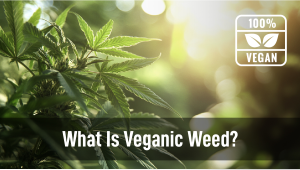
- 1. What is veganic weed?
- 2. Veganic vs organic
- 3. What to keep in mind?
- 4. Vegan living soil recipe
- 5. Keys to veganic weed
- 6. Veganic weed faqs
Most people are familiar with organic cultivation; however, a new concept is gaining popularity among cannabis cultivators—veganic weed. Just like dairy-free, vegan weed is becoming increasingly popular in the cannabis market. But what exactly is veganic weed? Simply put, vegan weed refers to growing cannabis without using animal by-products. However, there is much more to veganic weed. So if you want to learn what it is and how to grow it, read on!
What Is Veganic Weed?
Veganic weed refers to cannabis grown using veganic farming practices (also known as Veganics). Veganic growing goes beyond just improving flavor and quality. It also makes it easier for plants to metabolize nutrients because veganic farming avoids animal by-products, which tend to decompose more slowly. Since plants spend less time metabolizing, they can use that energy to develop terpenes, cannabinoids, and other valuable compounds.
Veganic nutrients are more similar to the nutrients plants absorb in nature, where plants can take up nutrients continuously because they are available 24/7. This means that Veganics not only result in better quality cannabis but also increase nutrient bioavailability for plants, allowing them to maximize energy usage and production.
Veganic VS Organic
Both organic and veganic farming focus on maintaining natural practices, but veganic farming combines both veganic and organic methods. Organic plants are grown without chemicals or pesticides, but veganic farming takes it a step further by abstaining from using animal by-products typically included in organic nutrients, such as cow manure, guano, and fishmeal.
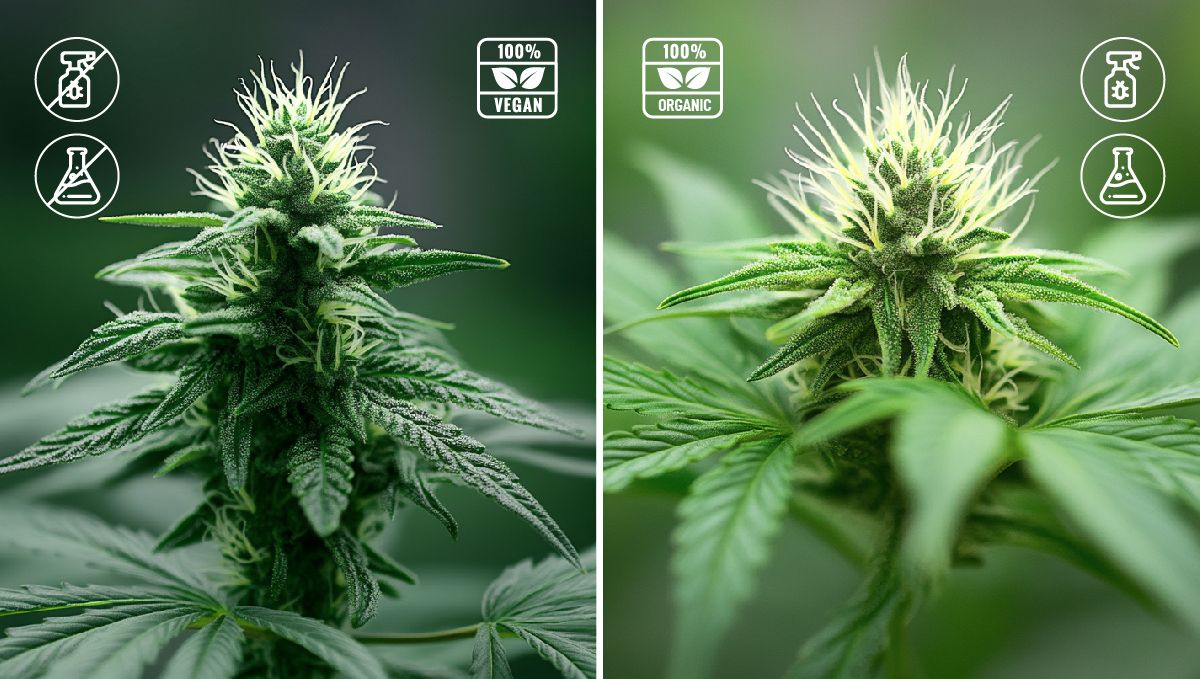
So why use veganic instead of organic nutrients? Non-veganic products can break down slowly, leaving residues in the plant. Additionally, animal waste can contain hormones, pesticides, and antibiotics, which can affect the quality and taste of your weed and have detrimental effects on the pH of the soil.
What to Keep in Mind?
Before we delve into a veganic living soil mix, let’s go through some very important things to have in mind when growing vegan weed.
Seeds
Vegan weed starts with obtaining vegan seeds. Yes, you heard that right. In order to grow 100% vegan weed, you should look for breeders who specialize in vegan seeds. If you cannot find vegan seeds, high-quality seeds from reputable sources will work just fine.
Soil
For the substrate, it's recommended to use a store-bought soil mix or to make your own mix. However, ensure it contains beneficial microorganisms, or add them yourself by mixing in a mycorrhizae and bacteria inoculant.
Compost
In veganic, we use vegan compost instead of regular compost which main contain manure or other animal ingredients.
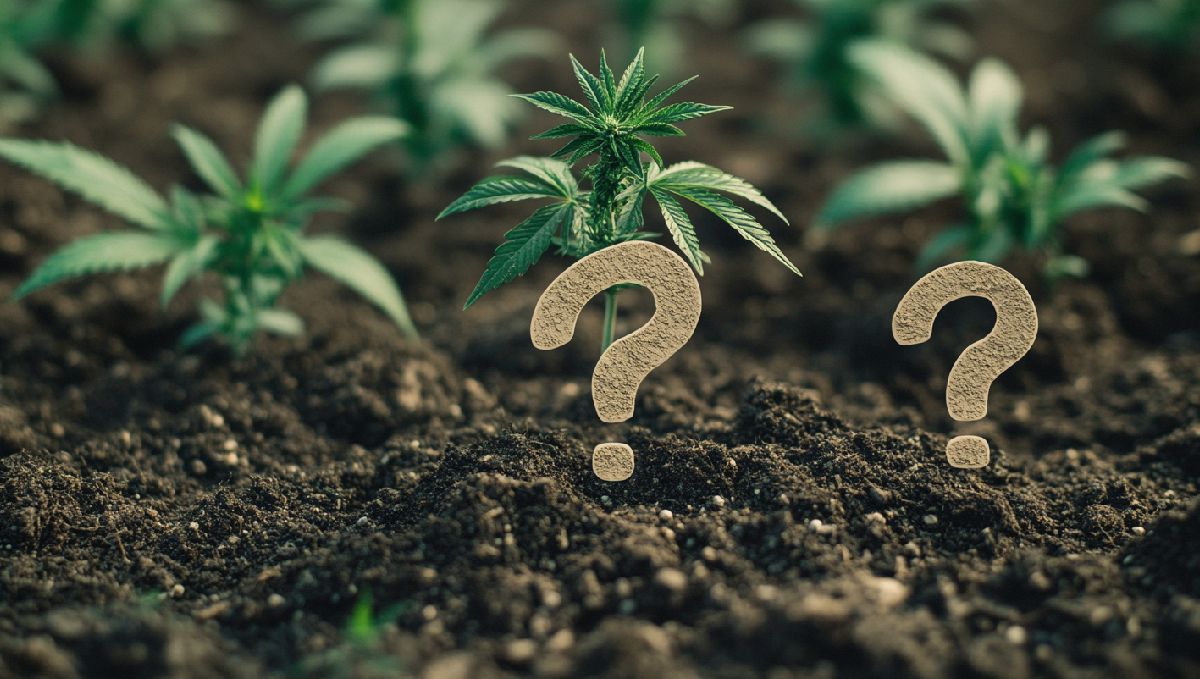
It may be difficult to find vegan compost and the composition may vary from one place to another, so we recommend making your own using dried leaves, wood chips, and twigs among other things. Remember to keep a 25:1 (carbon:nitrogen) ratio for ideal results.
Compost Tea
Compost teas are widely used in organic growing, and the same applies to veganics. However, you need to brew veganic compost tea with the same veganic compost mixed in the soil, make sure to add beneficial microorganisms to replenish the soil with life.
Vegan living Soil Recipe
Now that you understand a bit more about vegan weed versus organic weed, let’s dive into a recipe for veganic living soil. Keep in mind that the ingredients may be somewhat difficult to find depending on where you live. However, there are organic alternatives that will work just fine if you cannot find any of the mentioned ingredients.
Dry Ingredients
Starting with the soil mix, you will need:
- 107 liters of peat-moss-based substrate
- 1 ⅓ cup of Alfalfa Meal
- 1 ⅓ cup Cottonseed Meal
- 1 ⅓ cup Soybean Meal
- 1 ⅓ cup of Azomite
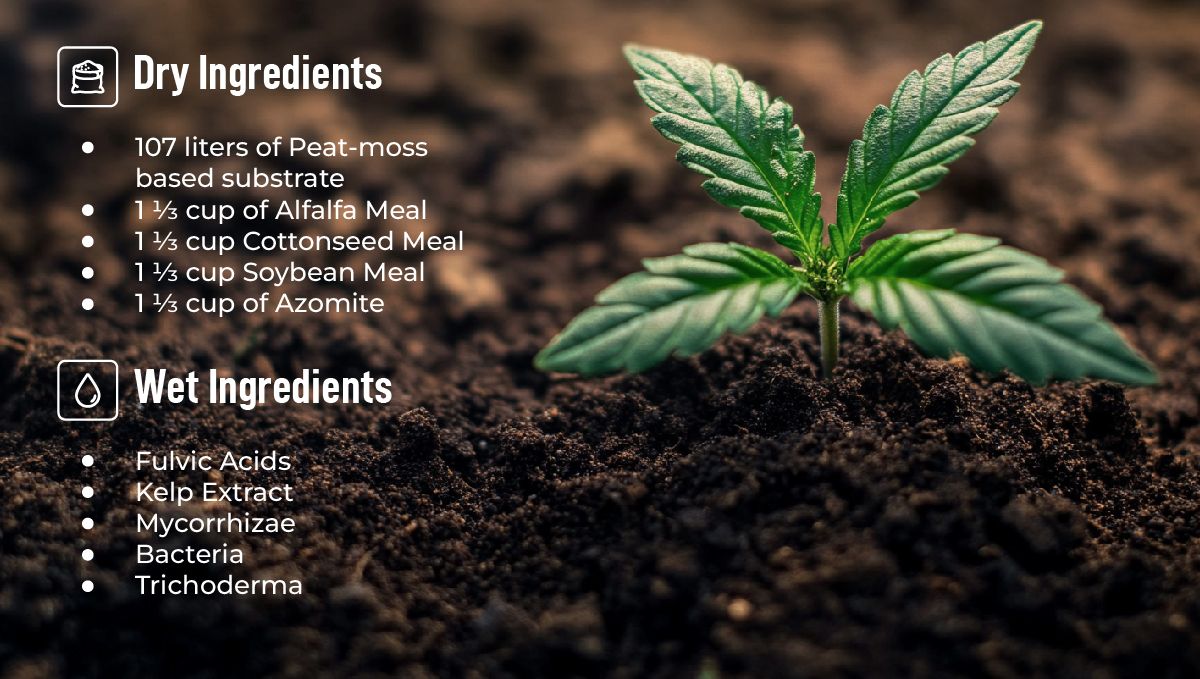
Now we need to the life to our soil ti transform it into living soil by adding the wet ingredients.
Wet Ingredients (per 4 liters of water)
For our first watering, we need to add all the living microorganisms. To introduce these beneficial organisms, we’ll use the following:
- Fulvic Acids
- Kelp Extract
- Mycorrhizae
- Bacteria
- Trichoderma
There are better and less effective brands, but use whatever you have available. Just make sure to follow the instructions, and you’ll see mycelia forming in no time. By soaking the soil with the wet ingredients, you have successfully make you brown veganic living soil, however, that’s not enough to grow a plant from seed to harvest.
Maintenance
In order to keep the plants well-fed and healthy, make sure to incorporate all the wet ingredients on every watering (at a reduced dosage), or at least once a week.
Keys to Veganic Weed
If it’s not evident yet, the key lies in the soil. It does not only need to have good-quality nutrients but also must be packed with beneficial microorganisms. The aim is to create a super soil that imitates the natural ecosystem and then fill it with life, creating living soil. These microorganisms play a vital role in veganic growing because they decompose matter, increasing nutrient availability, promoting nitrogen fixation, enhancing water retention, and preventing root disease. However, for these microorganisms to stay healthy, you need to provide oxygen through good soil aeration, using perlite or vermiculite, for example.
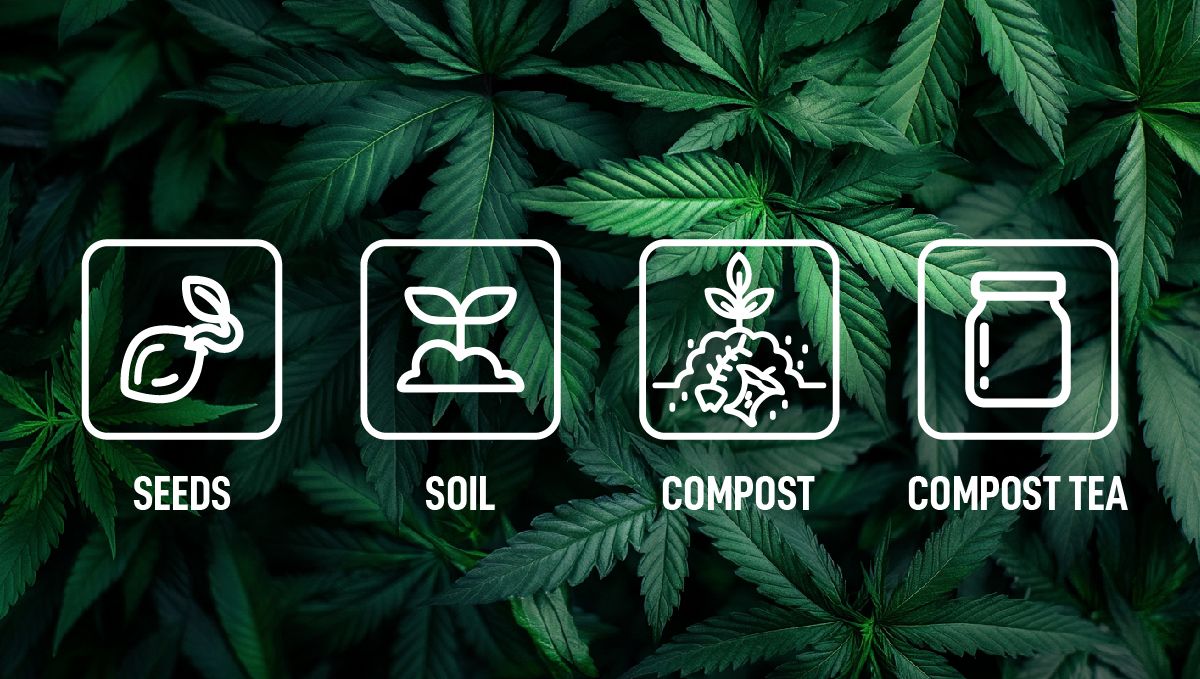
Additionally, humic acid and mycorrhizal fungi will not only develop but also colonize the roots more easily, creating a more expansive nutrient distribution network, which leads to more vigorous, healthier plants. Many growers hesitate to switch to veganic growing because some claim that veganic-grown plants yield less. However, this is not true, as the only thing that changes is the source of the nutrients. Ultimately, it will come down to your ability as a grower. Keep in mind that the soil is just one part of all the variables that result in top-shelf cannabis.
Veganic Weed FAQs
What are the benefits of veganic growing?
Veganic practices give it a more sustainable approach, helping achieve an environmental balance. By eliminating animal by-products and chemicals, you can create a more natural ecosystem that can lead to healthier plants and better-quality cannabis.
How do veganic nutrients help with the quality of cannabis?
Using veganic nutrients can optimize plant growth and potentially enhance the quality of the resin, which is critical to the therapeutic effects of weed.
How does vegan weed differ from non-veganic weed?
Veganic weed exhibits increased purity, resulting in a product with fewer contaminants. Some growers believe that less impurities have the potential to produce higher potency weed due to improved nutrient absorption and improved plant health.
What are the challenges of switching from organic to veganic?
The main challenge is to find proper plant-based sources and adapt to pest prevention techniques.
Will veganic nutrients affect the aroma and taste of the weed?
Yes, since there are less purities in the soil, the aroma and taste profiles can be influenced since healthier plants tend to produce more flavorful weed.










Comments